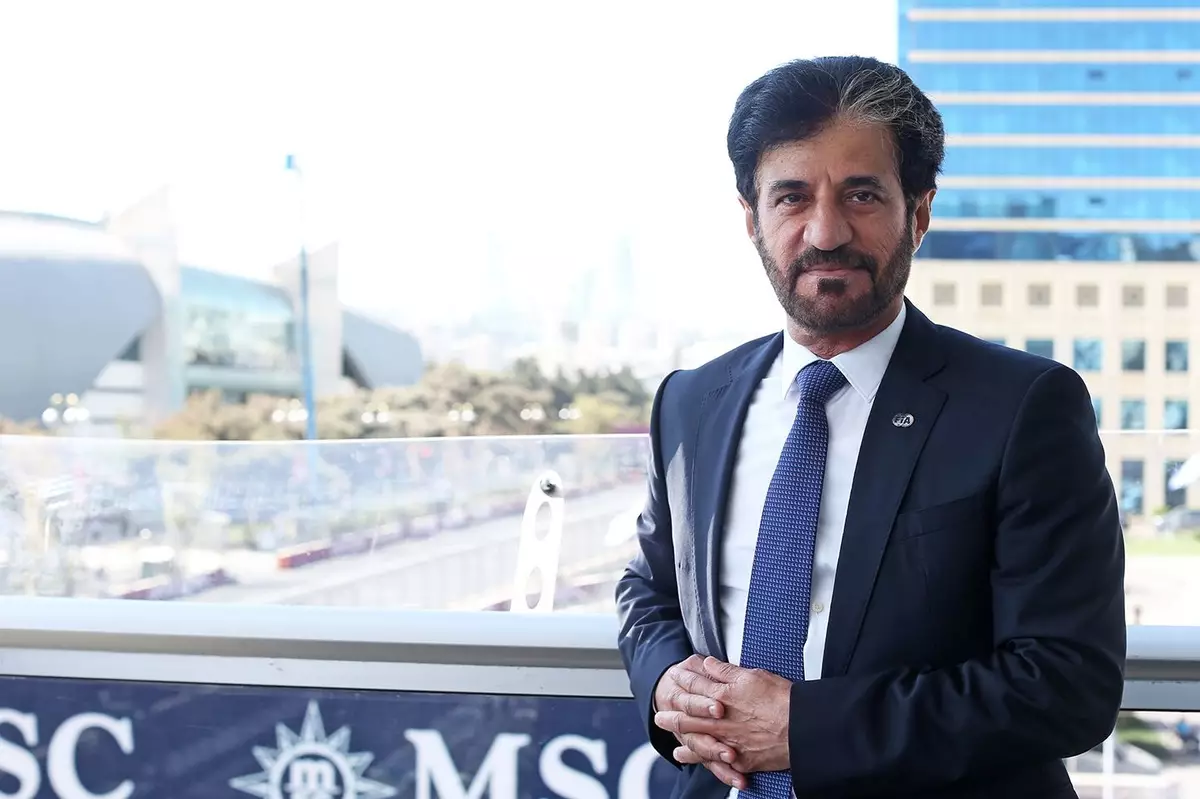In the fast-paced world of motorsport, public perception is often shaped as much by the media’s portrayal as by the events on the track. Mohammed Ben Sulayem, the current president of the FIA, finds himself at the center of this dynamic, claiming that the British media has not granted him the fairness he deserves during his presidency. His recent statements come in light of Adrian Newey’s comments regarding the treatment of drivers like Max Verstappen and Sebastian Vettel, suggesting a pattern of demonization by the press that extends beyond mere reporting.
Ben Sulayem has articulated a clear frustration with this perceived bias, suggesting that the media often prioritizes sensationalism over accuracy. He highlights that the media’s relentless targeting can lead to unjust narratives that harm individuals’ reputations. The FIA president’s assertions resonate with those who recognize the challenging relationship between sports figures and the media, where competing interests can obscure the truth.
There is an undeniable weight to Newey’s assertions, which Ben Sulayem echoed in his remarks. He expresses deep respect for champions like Verstappen, acknowledging their struggles in the media spotlight. This connection between leader and athlete is significant; it showcases how current executives in motorsport can foster relationships with competitors, validating their challenges and experiences. Such recognition not only humanizes Ben Sulayem but also positions him as a figure who understands the sport from multiple perspectives.
By openly discussing the unfair treatment of high-profile athletes, Ben Sulayem invites a broader conversation about the role of media in shaping narratives within motorsport. As a former champion driver himself, he brings an insider’s view to these discussions. This makes his criticisms of the British media not merely personal grievances but calls for more responsible journalism that considers its impact on the stakeholders involved in the sport.
A key aspect of Ben Sulayem’s response to media scrutiny is his assertion of independence from external pressures. He emphasizes that the FIA operates as a democratic body, legitimized by a General Assembly comprised of its member clubs. This assertion of autonomy is crucial; it signals to both the media and the public that the FIA is not swayed by sensationalist reporting. Instead, it remains focused on its foundational mission to govern motorsport fairly and effectively.
Ben Sulayem’s resolute stance—claiming that the media does not hold power over him or the organization—demonstrates a commitment to maintain his integrity in the face of critique. His disinterest in retaliation against the media is commendable, reflecting a strategic approach to leadership. Instead of engaging in unnecessary conflicts, he focuses on fulfilling his obligations to the members of the FIA, reinforcing the idea that the federation prioritizes its constituents over external commentary.
As he prepares for a re-election campaign, Ben Sulayem expresses confidence in the advancements made during his tenure. He candidly states that the FIA is now in a healthier state than it was at the end of 2021. This claim stands as a testament to his leadership, as he strives to align the organization’s priorities with member expectations. By committing to transparency and efficiency, he works towards reinforcing trust and accountability within the federation.
His assertions about the FIA’s improved efficiency reveal a forward-thinking mindset. He connects this efficiency directly with the organization’s capacity to represent its members effectively, acknowledging that the FIA’s power lies in its relationship with its constituent clubs. This approach encourages a collaborative atmosphere, where member voices are not only heard but actively influence the federation’s direction.
Looking ahead, Ben Sulayem articulates a clear vision for his remaining term. He aims to fulfill his manifesto while continuing the momentum of reform and repositioning within the FIA. His emphasis on generating additional revenue suggests an awareness of the evolving needs of the organization. The trajectory he outlines indicates a desire for sustainable growth, ensuring that the FIA remains viable and influential in the global motorsport landscape.
In light of this, Ben Sulayem’s invitation for others to challenge him in a presidential race reflects a robust belief in democratic principles. This open challenge not only reinforces his confidence in his leadership but also sets a standard for accountability within the FIA. By fostering an environment where candidates can emerge from within its ranks, he underscores the importance of democratic engagement in governance.
Mohammed Ben Sulayem’s insights into media relations and leadership reveal a complex interplay between public perception and organizational governance. His journey illustrates the importance of resilience, understanding, and strategic vision in navigating the often turbulent waters of motorsport politics. As he prepares for the future, his commitment to his members and the sport itself remains paramount, illustrating the essential qualities of a leader in this high-stakes arena.


Leave a Reply